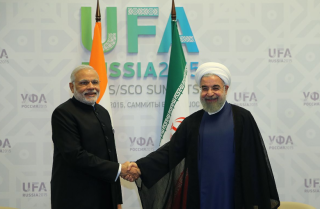Just How Vulnerable Is Iran to Sanctions?
The West should encourage Iran's reintegration into the global economy. But if it cheats...
To be sure, uncertainties remain. Freezing Iran from the international financial system signaled to non-western states the need for viable alternatives. Both Russia and China, for example, are in the final stages of bringing their own financial messaging systems online to hedge against a ban from SWIFT—the Belgium-based company responsible for almost all global financial messaging. Also, the new Asian Infrastructure Investment Bank, which supports development projects in Asia-Pacific region, provides an alternative to western-dominated capital markets. Still though, a major structural re-shuffling of international markets, of the type that would spell catastrophe for imposing future sanctions is still far off, and may never happen. As others have pointed out, conditions in China do not yet exist for a truly international renminbi. After China’s recent stock market crash, for example, Beijing’s decision to cut interest rates, cap short-selling, and drive up the price of securities by suspending initial public offerings—all in an effort to prevent capital markets from drying-up— is a clear indicator that China might not be ready for a hands-off approach.
The lessons are clear—the United States and the EU should work to encourage Iran’s re-connection to a global economy, modernize its banking and financial system, and bring transparency and good governance to its trade and commerce practices. While counter-intuitive for some, fostering Iran’s economic growth does not undermine the capacity to impose sanctions after the JCPOA, as long as the U.S. maintains its dominance in global finance and continues to explore innovative coercive economic strategies.
Aaron Arnold is an Associate with the Project on Managing the Atom at Harvard University’s John F. Kennedy School of Government, Belfer Center for Science and International Affairs. He is also a professor at Curry College.
Image: Iran president website

